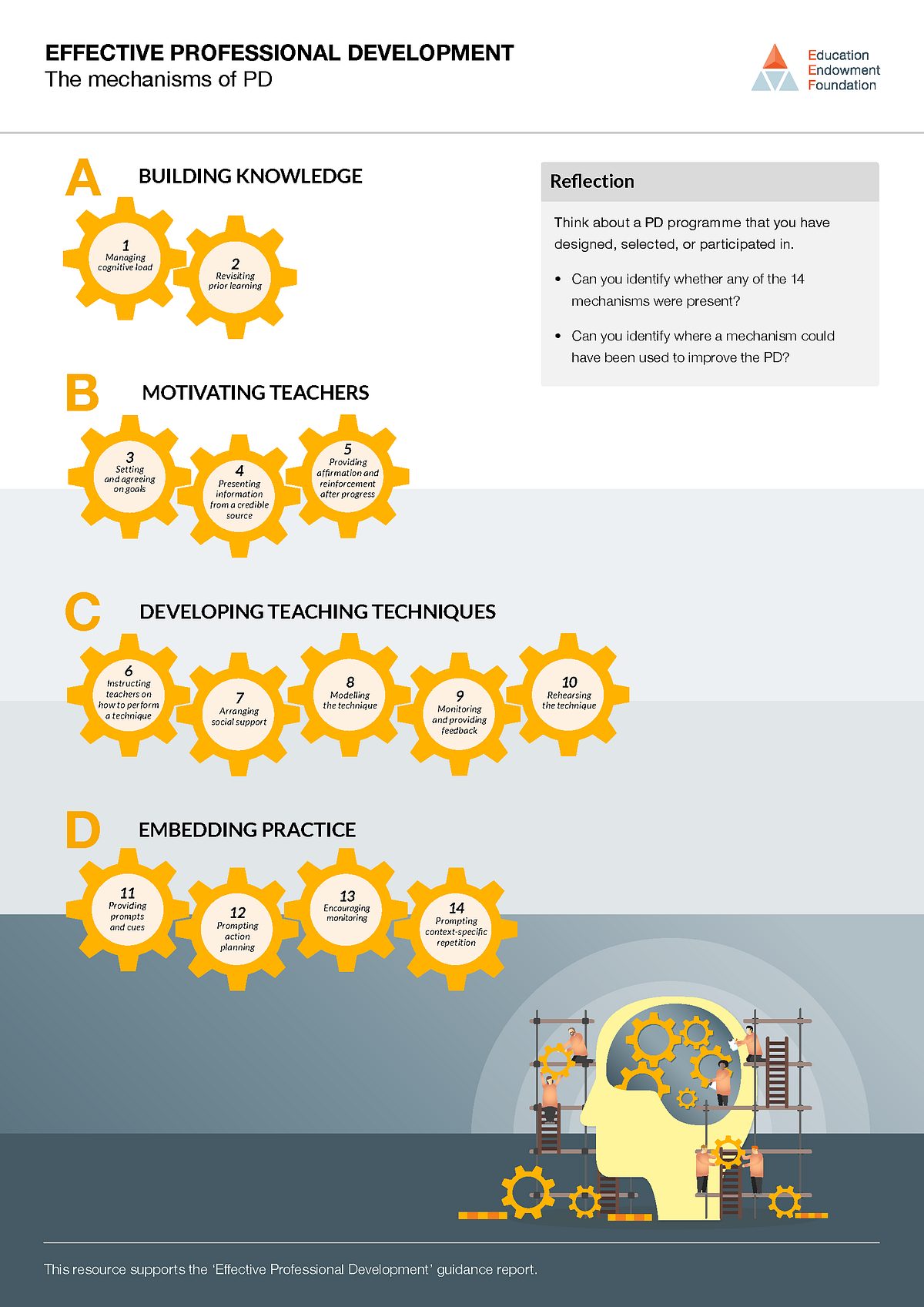
Blog -
Share on:

by Research Schools Network
on the
Susie Fraser is Director of Manchester Communication Research School, English teacher at Manchester Communication Academy and Programme Lead for Designing Effective Professional Development with EEF.
As educators, the act of reflecting is prevalent in our practice. We ask our pupils to reflect on their work, on their approach to a task, on what they have learnt. There may be times when we encourage pupils to reflect on their behaviour or their attendance. As teachers, we are continually reflecting on our practice; did the lesson go to plan? Did the pupils learn what I intended? What feedback is necessary to move learning forward?
However, how often do we intentionally reflect on our professional development (PD) in a way that can contribute to the change or development of practice? It is important here to make the difference between reflection and evaluation. In this context, when we are evaluating PD, we are usually providing feedback to the facilitator on our perceptions of the quality of the training. On the other hand, when we meaningfully reflect, we are considering what we have learnt, how we have engaged with that knowledge and what this could mean for our practice and ultimately, our pupils.
The EEF guidance report, Designing Effective Professional Development, identifies fourteen mechanisms of professional development:

Well-designed reflection tasks could potentially meet the requirements of a number of these mechanisms.
Firstly, if teachers are encouraged to reflect on the key principles of theories or strategies then this could be an opportunity to revisit prior learning (mechanism 2).
If the task includes an opportunity to identify where new learning has led to changes in practice, this could be an opportunity for affirmation and reinforcement (mechanism 5).
The process of reflection itself should be synonymous with the process of monitoring (mechanism 13) and if this then leads to the identification of next steps then this would be aligned with the concept of prompting action planning (mechanism 12).
Sometimes the tension that can arise with designing reflection tasks is whether the reflections are private and just for the consideration of the teacher or whether there is value in sharing the reflections with a colleague. This decision may be influenced by the culture for professional development at your school but also whether sharing the reflections could be an opportunity for social support (mechanism 7).
At Manchester Communication Academy, we have recently facilitated a reflection activity during our January PD day.
Reflection is something that is continual as part of our PD programme. Teachers work closely with subject specific Teacher Educators to reflect on the success of a practice activity during training sessions; they participate in peer observations that focus on the specific strategy; and they have the opportunity to privately journal their reflections at frequent points throughout the PD cycle.
So for the reflection activity, we wanted to provide a structure that could be a catalyst for further change and development. A process for looking forward as well as looking back.
The task included the following questions:
Please bullet point your learning of the research from this half term
All the reflections were stored and shared with the Quality of Education team. The team then read the responses and engaged in conversations with teachers about their reflections; sharing where they really enjoyed reading about their lightbulb moment, for example, or thanking colleagues for their honesty and frankness about the extent to which they had embedded a new strategy. It was important to acknowledge that there was no right response here. Where teachers recognised that something had not quite gone to plan, this was equally, if not more powerful than when teachers felt new strategies were fully embedded.
As PD leads, it is important to consider how the design of reflection tasks can contribute to embedding change and not just seen as something that is retrospective and in the eyes of teachers, potentially unnecessary.

Blog -

Blog -

Blog -
This website collects a number of cookies from its users for improving your overall experience of the site.Read more